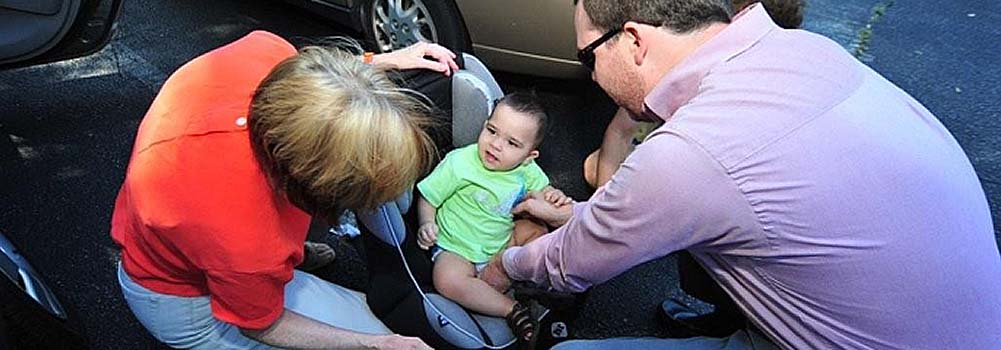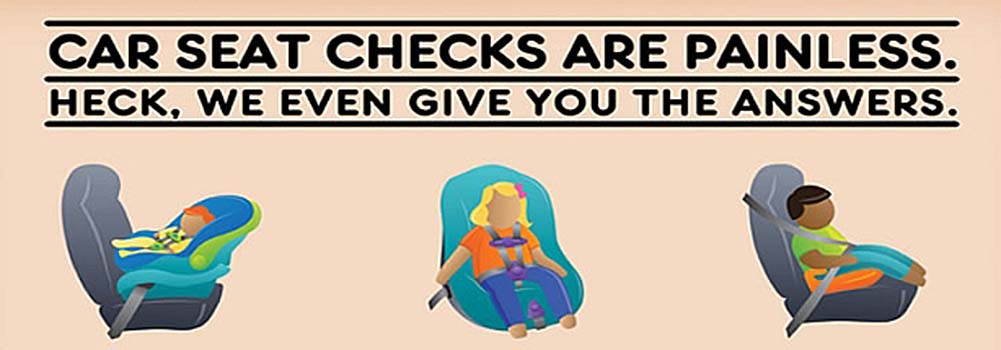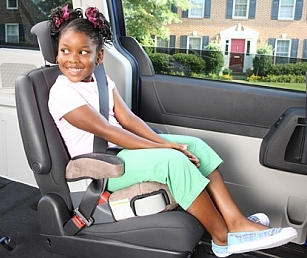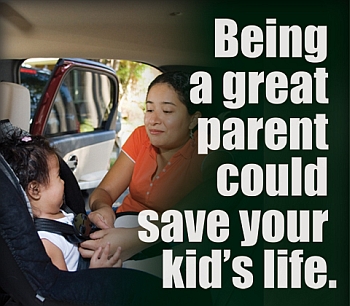Child Passenger Safety Program

Importance of Child Passenger Safety
Vehicle crashes remain the number one killer of children 1 to 12 years old in the United States despite advances in vehicle and safety seat design and stronger legislation regarding seat use. The best way to protect children is to place them in the right seat, at the right time, and use it correctly every time. In addition to vehicle crashes, children are at-risk as pedestrians and pedal cyclists.
Child Restraint Best Practices*
-
Infants/Toddlers: rear-facing seats until 2 years of age or they reach highest weight or height allowed by their car safety seat's manufacturer
-
Toddlers/Preschoolers: forward-facing seat with 5-point harness at age 2 or they have outgrown their rear-facing seat until they reach highest weight or height allowed by their car safety seat's manufacturer
-
School-aged Children: belt-positioning booster seats after they have outgrown their harnessed forward-facing seat until the vehicle seat belt fits properly, typically when they reach 4'9" in height and are between 8-12 years of age
-
Older Children: lap and shoulder seat belts when they are old enough and large enough to use the vehicle seat belt alone.
-
All children younger than 13 years should ride, properly restrained, the rear seats of vehicles.
IGRSS CPS Program History Overview
Begun in 2001 with funding from the SC Department of Transportation, the IGRSS CPS Program (formerly known as CU Safe) served as a demonstration of the "Child Passenger Fitting Station" recommended by the National Transportation Safety Board as a means to address the confusion about and gross misuse of child safety seats by families and caregivers. CU Safe established fixed fitting stations in Anderson, Greenville, and Pickens Counties, South Carolina. In addition, CU Safe partnered with Greenville Easter Seals, SC Disabilities and Special Needs Board, Anderson-Oconee Head Start, the Anderson County WIC program, Oconee County Department of Health, and the Anderson City and Easley Fire Departments to ensure area families had access to current child passenger safety best practices, SC child passenger safety laws, and affordable seats.
In addition to the fitting stations services, CU Safe provided age appropriate educational programs on a range of transportation topics to pre-school and elementary school students; general education programs for parents and others; and continuing-education programs for child care workers, foster parents, and other helping professionals. Led by a program coordinator, the CU Safe team included undergraduate students and graduate research students from Clemson University from departments such as Public Health Sciences and the School of Education.
The Child Passenger Safety Program has provided inspections on the Clemson University campus, by appointment at no cost to interested families. All safety seat inspections were conducted by a certified CPS technician-instructor, included a review of best practices and last approximately 30 minutes. Educational programs - for personal knowledge or professional education credit – were customized to fit the needs of children and adults. Additionally, a CPS technician-instructor provided continuing education programs and conducted skill check-outs for re-certifying child passenger technicians as well as co-instructed the NHTSA standard curriculum for new child passenger safety technicians.





